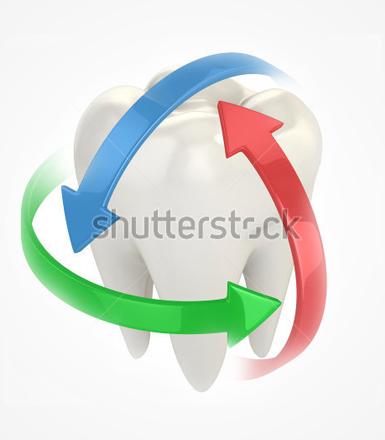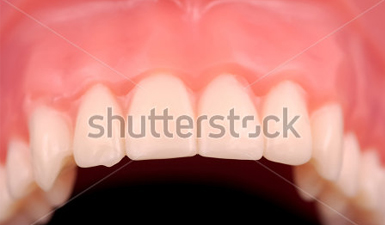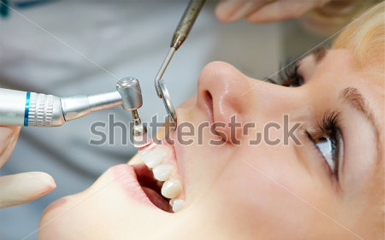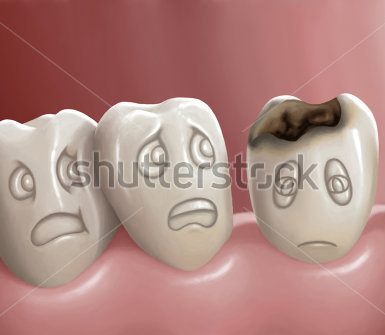-

Opening Hours
view our working time
-
Call us: +91 4936208777
+919562488777
Preventive Dentistry
Preventive dentistry is the area of dentistry that focuses on those procedures and life practices that help people to prevent the beginning or progression of oral disease Preventive care is a modern approach to dentistry. Preventive dentists and hygienists aim to reduce the amount of dental treatment that you need by working together with you to maintain a healthy mouth. The hope is to avoid the traditional cycle of fillings and extractions. Preventive dentistry can help you to keep your own teeth for a lifetime.
How it works?
Your dentist will assess your teeth and gums and devise an individual plan of action for you. Your smile specialists then work together to give you appropriate advice and help to look after your mouth. They will tell you about and demonstrate the best methods of brushing and flossing to remove the build up of dental plaque. They'll advise you about fluoride products and the effect of diet on oral health. If you follow this advice and continue to have regular check-ups with the dentist and visits to the hygienist,
it should ensure that your mouth stays healthy. Your smile specialists hygienist may also carry out ie scaling and root planing -to remove any build-up of hard tartar.
If your teeth have already been damaged, your dentist will devise a treatment plan to repair the damage and will discuss the treatment options with you. In the interests of prevention your dentist may recommend that weakened teeth are repaired with a filling or crown before they break.
The overall aim is to make you "dentally fit" (ie get your mouth healthy) and to keep you that way so that dental problems don't recur in the future. It isn't likely that decay or
gum disease will be a real problem in a healthy mouth.
- Bad Breath Management

Bad breath (halitosis) is a fairly common disorder affecting most of us at some point in life. The foul odor in bad breath is not considered to be a medical disorder unless it is a long term condition (chronic) and posing a problem in our lives. Halitosis may go beyond just a dental hygiene issue and can indicate more serious pathologies.
Any odor is a gas that is detected by the receptors in the nose. Volatile chemicals given off from the source of the odor travel through the air and can diffuse over a wide area which is the reason why bad breath can sometimes be detected from a few feet away. more... - Anti Microbial therapy

Antimicrobial therapy refers to using medications that can inhibit the growth of bacteria or kill bacteria. Specific antibiotics are capable of killing or eliminating the bacteria that cause periodontal or gum disease. Two of the most familiar forms of antimicrobial therapy are antibiotics and antiseptics. Products that have antiseptics are used to prevent periodontal disease while products that contain antibiotics are used to treat existing periodontal disease. One of the newest ways to kill bacteria is laser therapy. Dentists now use lasers to kill bacteria in the gum pockets around teeth. This treatment also seems to stimulate healing.
- Pit and Fissure Sealant

Teeth have natural dips or grooves in them, known as pits and fissures. It's all very groovy in one sense, but when it comes to keeping your children's teeth clean and free of cavities, pits and fissures aren't groovy at all.
Pits and fissures house bacteria and other substances which can cause tooth decay , and these grooves can't always be properly cleaned with a normal toothbrush. The dentists have developed pit and fissure sealants which can fill and seal the grooves your teeth and prevent bacteria getting in. They make teeth easier to clean and reduce the risk of experiencing tooth decay.
Fissure sealants are recommended for filling the adult or primary teeth of children who have a high risk of developing cavities. And even children who brush and floss regularly can be considered high risk, depending for example on the amount of fluoride they consume and the shape of their teeth (particularly the groovy parts).
- Fluoride treatment

Fluoride is a natural mineral found in food and water which helps to strengthen teeth and prevent tooth decay, by making the tooth more resistant to acid attacks from plaque and sugars. If fluoride is lacking from the diet, the teeth will be prone to tooth decay and cavities.
Fluoride treatments are offered to children who have a number of cavities or are at high risk of developing cavities. Adults can benefit too. Fluoride treatment is a very simple process administered by the dentist or dental hygienist which helps to prevent tooth decay. Can be linked to Dental Flourosis in Common problems for "more". - Gum Disease

Gum disease, also known as periodontal disease, is a condition in which the gums, deeper supporting tissue, and potentially the bone surrounding teeth become infected and inflamed. Gum disease starts with plaque on the teeth, a sticky white substance that coats teeth. It's formed when bacteria in the mouth mixes with saliva and residues from starchy foods and sugar in your diet.
If plaque isn't properly removed from teeth by brushing and flossing, it accumulates and hardens underneath the gumline into tartar. Once tartar builds up, it's much more difficult to remove than plaque and usually requires a cleaning at our Office.
Over time, it can lead to inflamed gums, or gingivitis. This is a mild form of gum disease. One of the most common symptoms is darker red gums that bleed with brushing or flossing. Professional cleaning can reverse gingivitis. - Scaling & Root Planing (Deep Cleaning)

Scaling and Root Planing (aka Deep Cleaning) is a non-surgical periodontal procedure that removes plaque, tartar and bacteria from your teeth and gums. We use specialized instruments to perform this procedure under local anesthesia . When pockets, which are the spaces between your teeth and gums, become deep, bad bacteria/plaque and tartar form under your gums and cause periodontal disease/inflammation. These deep pockets are impossible for you to keep clean at home and will progress if not treated.
The main goals of this treatment are to
Remove plaque/bacteria Remove tartar Reduce inflammation (bleeding)Once this procedure is completed, we re-evaluate your gums assess the response of treatment and if further periodontal treatment is needed.
- Decay detection

Laser decay detection is based on the fact that healthy tooth structure reflects light differently than it does decayed tooth structure. More simply, light easily penetrates healthy teeth. And on the flipside, light has a tougher time passing through dental cavities.
Our Dentists perform laser cavity detection by beaming laser light onto the chewing area of your teeth. The pen-like instrument that's used to probe the mouth in laser cavity detection is similar to a light wand. As your dentist scans the chewing area of your teeth with this light wand, the attached readout portion of the laser cavity detection machine checks the density of your tooth structure and calculates the possibility of tooth decay. When increased light wavelengths register, your dentist is notified of a possibly compromised area from the readout, as well as the machine's auditory signaling system.
Early dental cavity detection means that in some cases, dentists can actually prevent the onslaught of cavities. When they find weak areas, fluoride may be prescribed to do battle with the would-be dental cavity, stopping it from ever forming. If a dental cavity is found before it invades the tooth's dentin (softer tissue below surface enamel) a dental sealant is sometimes indicated or, if necessary, a dental filling may be the prescribed course of dental treatment.


